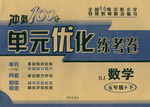题目内容
He had his left arm ________ by the running machine during work, so the electricity had to ________.
- A.cut down; cut off
- B.cut away; cut down
- C.cut off; be cut off
- D.cut out; cut through

 云南师大附小一线名师提优作业系列答案
云南师大附小一线名师提优作业系列答案 冲刺100分单元优化练考卷系列答案
冲刺100分单元优化练考卷系列答案The fictional Chinese-American detective Charlie Chan was the subject of popular books and movies for many decades. In recent years, however, the character has been criticized as an ill image of Asian-Americans.
Yunte Huang, an English professor at the University of California, says that’s not the case. He has been exploring the character and real-life policeman who inspired him.
Charlie Chan has been a familiar character to readers and film-goers, beginning in the 1920s. The detective solved crimes around the world in more than 40 films through the 1940s, and with the invention of television, found a new audience in the 1950s and 1960s.
Huang discovered Charlie Chan through books by American author Earl Derr Biggers, who created the character.
“One day, I happened to find two Charlie Chan novels. At that point I thought I knew that he was a negative character against Asians, but when I read the book,” he says, “I was immediately attracted. Ever since then, I’ve been a fan of Charlie Chan.”
As a fan of the books and films, Huang was surprised to learn that Charlie Chan was based on a real detective named Chang Apana, who was born to Chinese parents in Hawaii around 1871. Apana worked as a cowboy, and joined the Honolulu police force in 1898.
“He almost immediately became a local legend because as a former cowboy,” says Huang, “he would walk the most dangerous areas in Chinatown carrying a bullwhip(皮鞭)instead of a gun. He didn’t need that.”
Although some say the image of Charlie Chan, with his broken English, is embarrassing for Asian-Americans, Huang believes Chan’s broken English and unusual ancient sayings were part of his charm(魅力).
“Let me just quote(引用)a few – ‘Actions speak louder than French,’ or ‘Mind like parachute (降落伞). Only function when open.’ Charlie Chan always owes these instructive sayings to Confucius’ eastern wisdom.
For Huang, the fictional Charlie Chan is highly entertaining, while the real-life policeman, Chang Apana, is a Chinese-American success, whose story is worth telling.
【小题1】The passage mainly talks about ______________.
| A.how Yunte Huang discovered Charlie Chan |
| B.how Charlie Chan became famous in the US |
| C.what Yunte Huang thought of Charlie Chan |
| D.how a cowboy became a famous detective |
| A.was a character in books and movies based on a real detective |
| B.was a famous actor starring in movies beginning from the 1920s |
| C.was a famous detective solving crimes all over the world |
| D.was a Chinese immigrant who became a local legend |
| A.he had his personal charm |
| B.he liked being a cowboy |
| C.he was not a true policeman |
| D.a bullwhip was more useful |
| A.American author Earl Derr Biggers gave an ill picture of Asian-Americans |
| B.Yunte Huang believes Charlie Chan represents Asian wisdom in some way |
| C.Chan’s story was more popular with TV audience than readers and film-goers |
| D.Charlie Chan became an ill image of Asian-Americans when it first appeared. |
Arriving home tired, he had his wife ____ the dinner for him.
|
A.cook |
B.cooked |
C.to be cooked |
D.to cook |
He had his camera ready ________ he saw something that would make a good picture.
|
A.even if |
B.soon after |
C.in case |
D.so that |